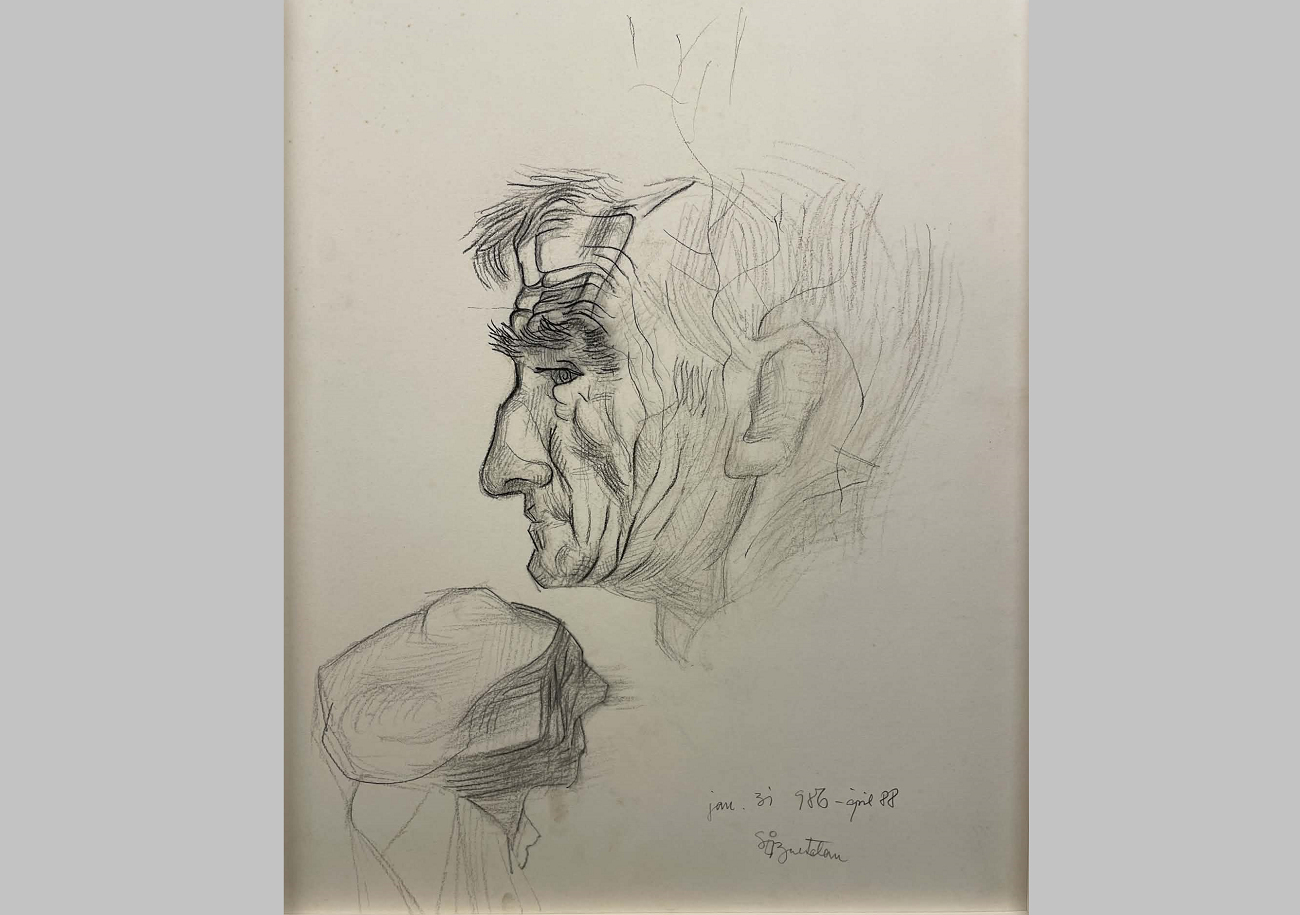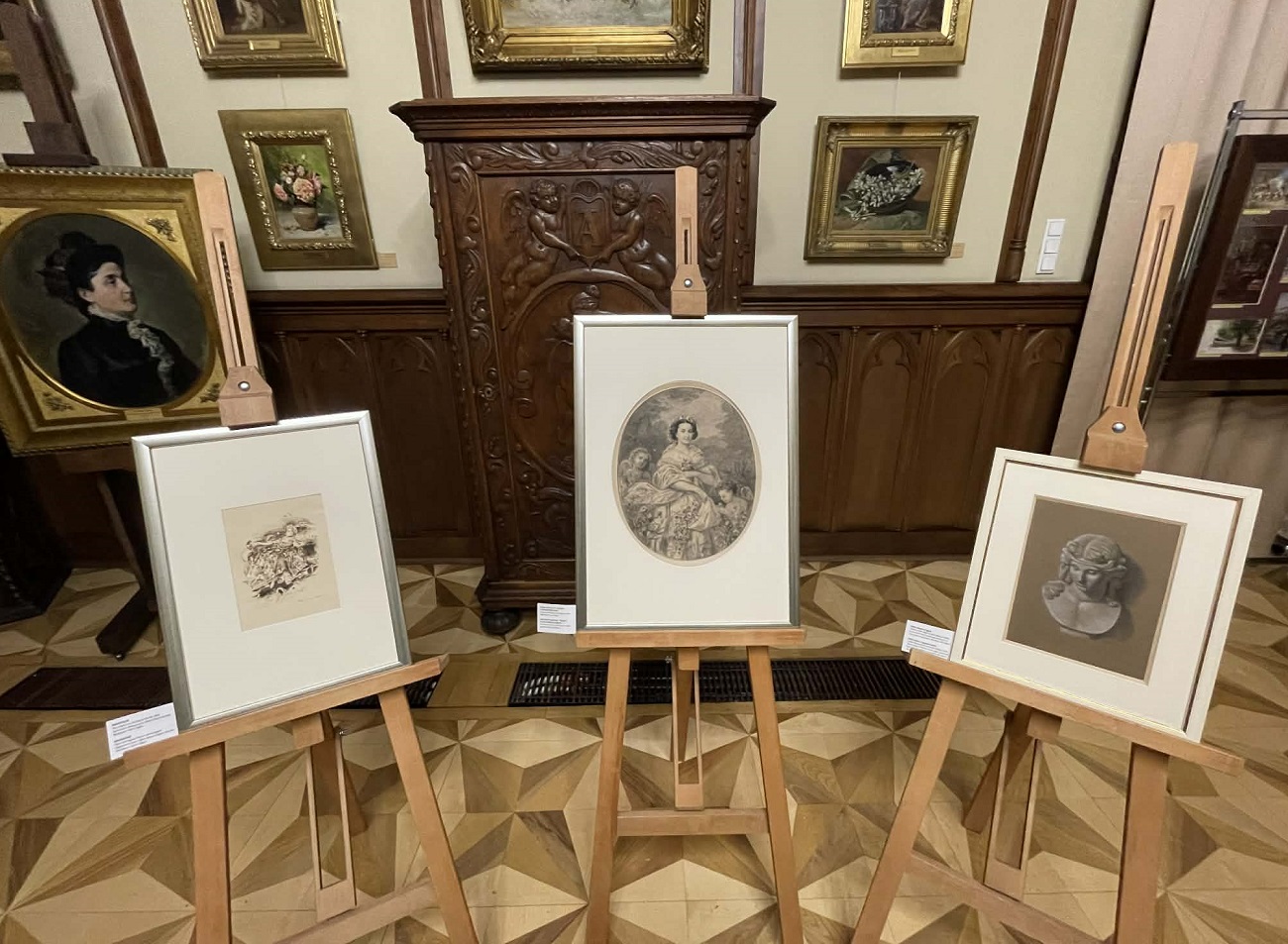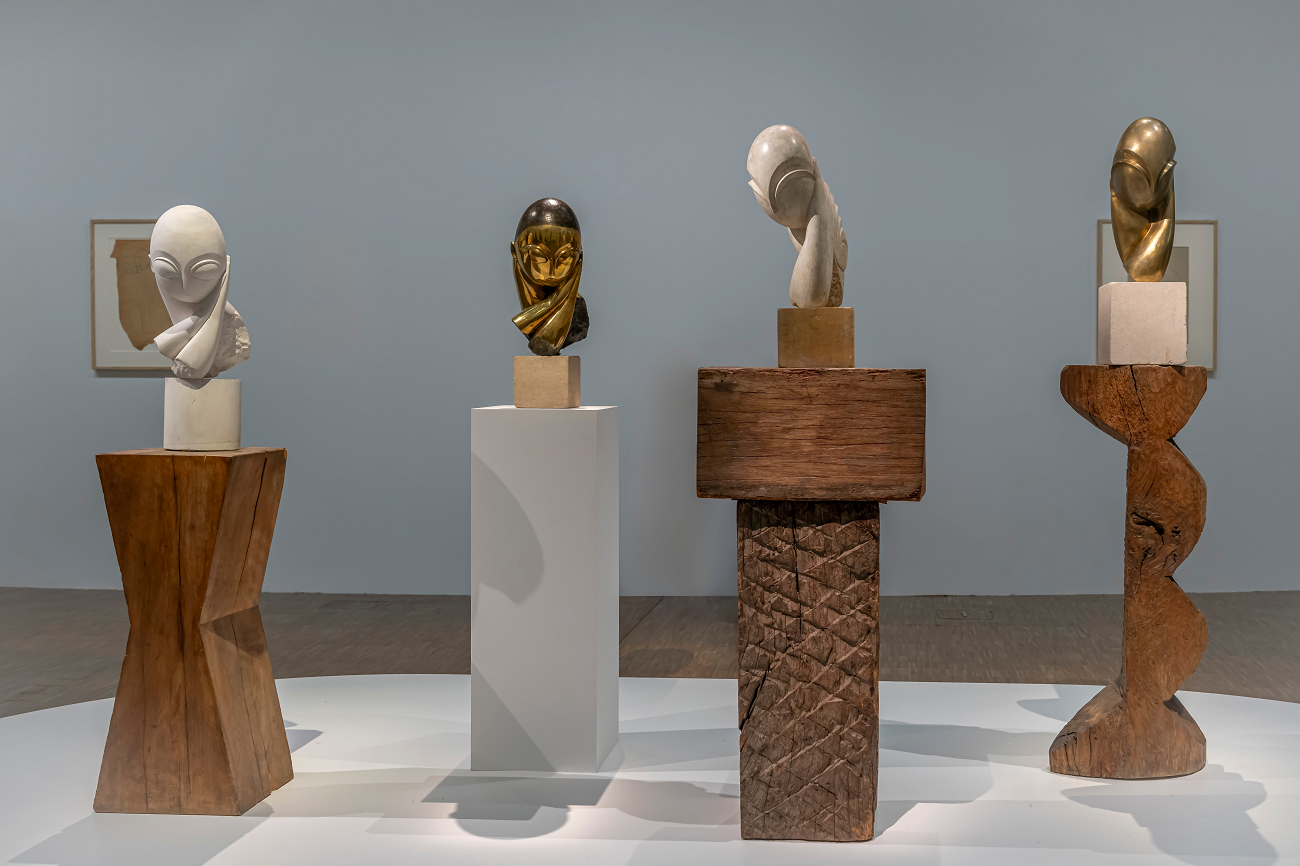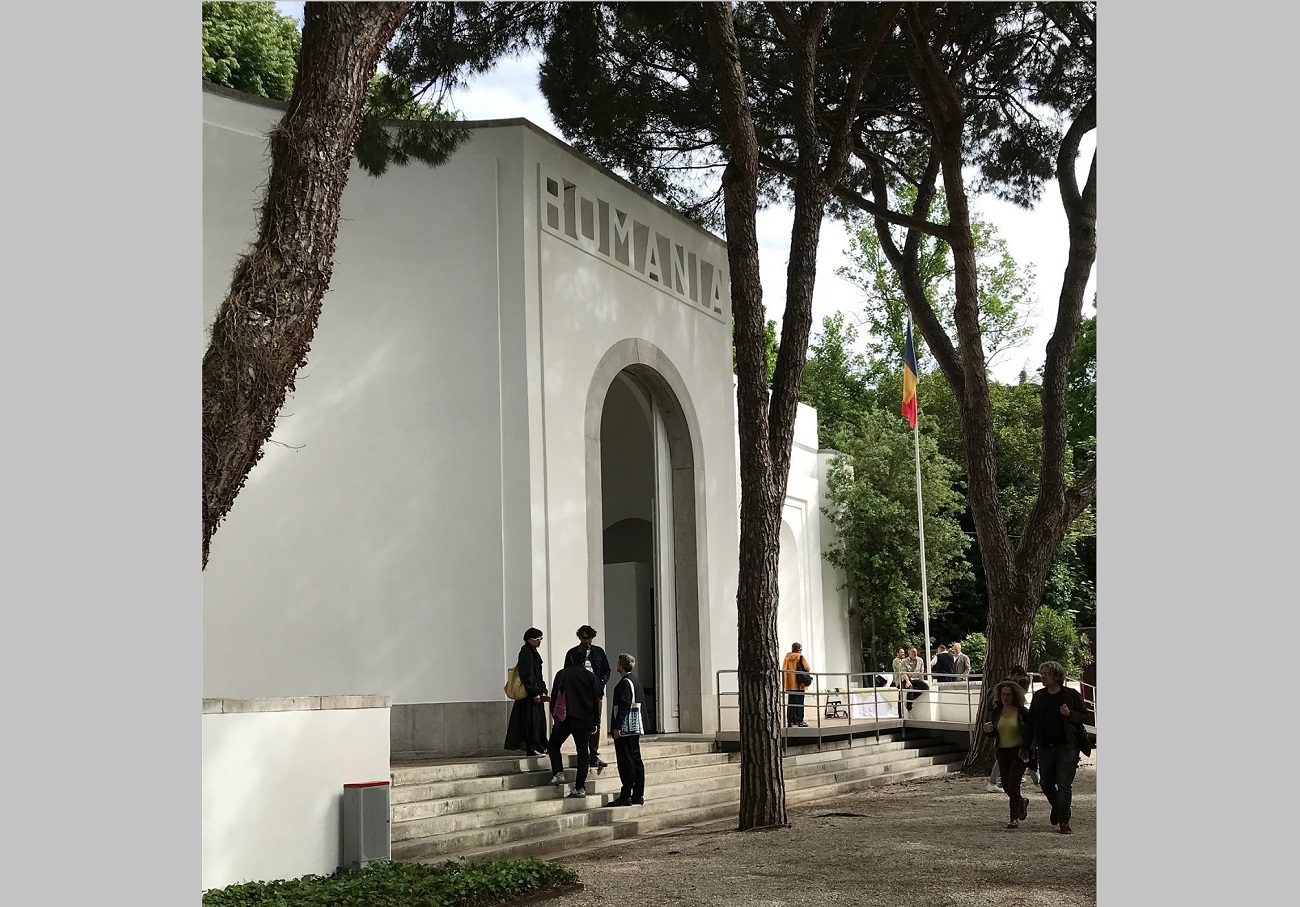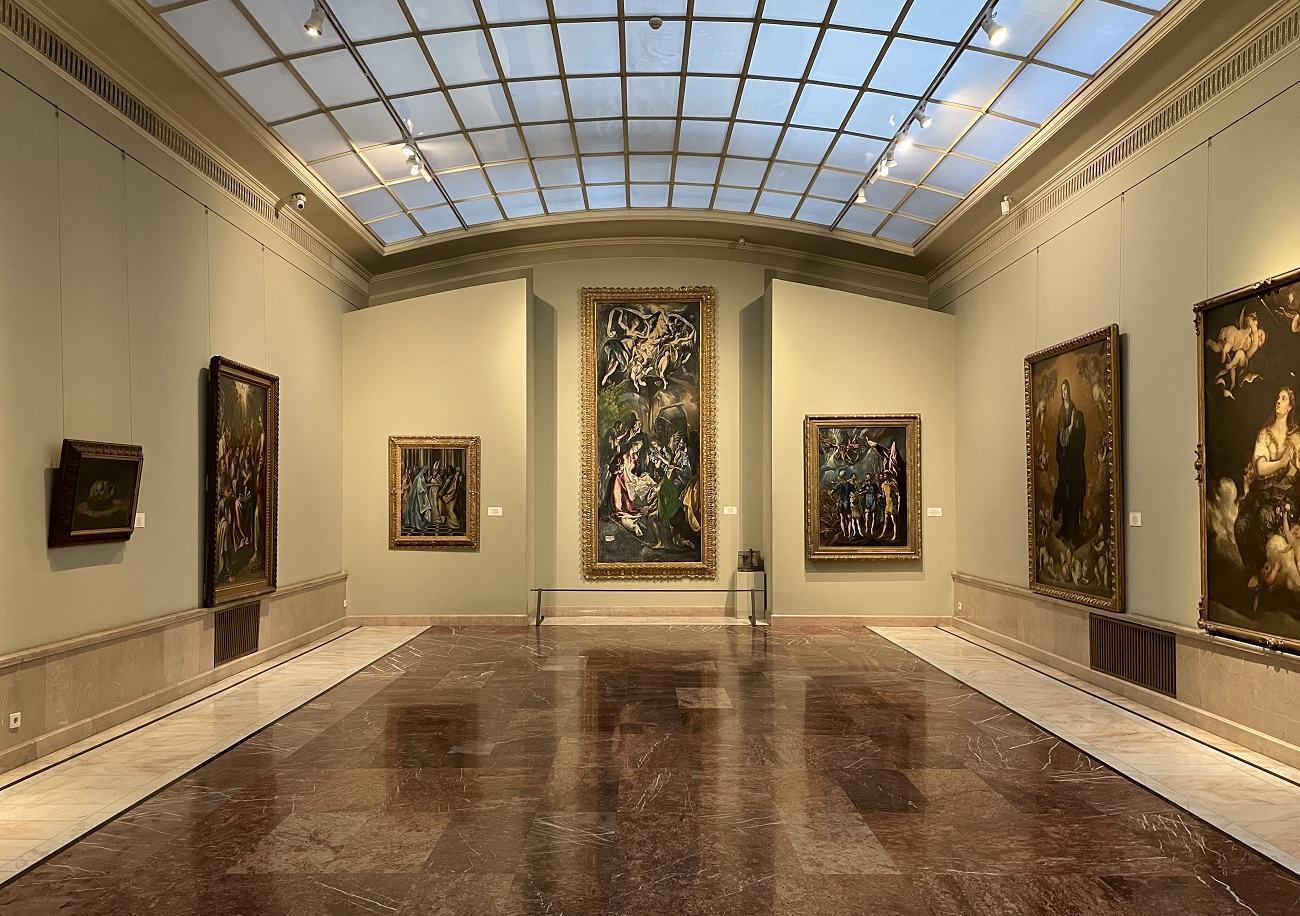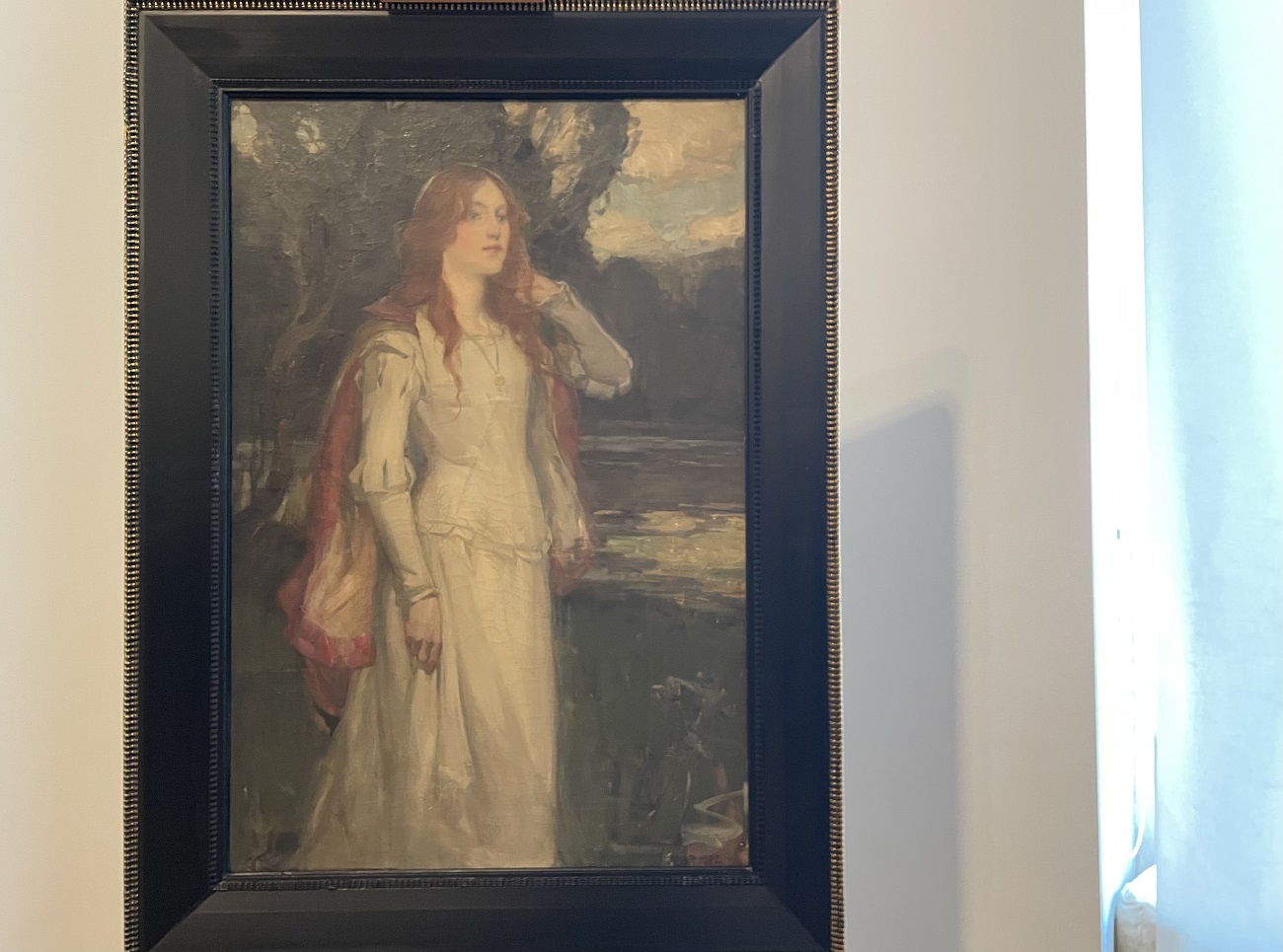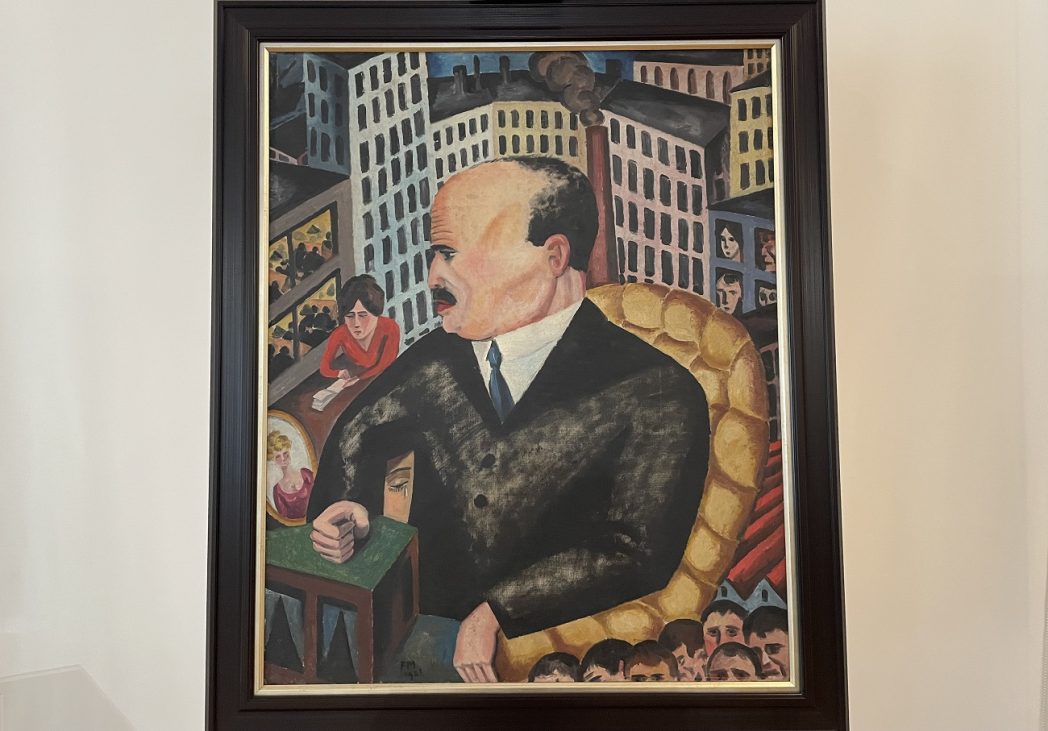
“The Factory Manager”, a rare show of power in the Romanian State collection
“The Factory Manager”, an oil on canvas donated to the Romanian state in 1949, is unique in the œuvre of Frans Masereel, about whom little is known. The artist distinguished himself as an engraver and book illustrator, an activist for workers’ rights after the First World War.
In this painting, he depicted a character of the industrialized world. Pounding the table, he is depicted in a pose of power, surrounded by anonymous workers against the backdrop of a metropolis. Many such protest works after 1920 were destroyed by political regimes.
In the case of this one kept by the National Art Museum in storage and now on public display until the end of June, it is unclear whether the donation was “real” or Adelbert Kamner – the official donor – was forced to leave the painting, perhaps other art objects, and leave the country. Dr. Mălina Conțu, historian and theorist of art and architecture, head of the European Art section at MNAR, says there are no further details on how the painting came to be state property. The situation with this painting is not unique.
New Objectivity, social engraving and the first silent novel
Portraiture, from ancient times to today, is a representation of power. Whether we are talking about statues of pharaohs, rulers of the Roman Empire or Popes, or leaders in their respective circles, grandeur is rendered to convey a simple message – who has the power.
With industrialization, the 19th century saw a change in portraiture and a change in the subjects painted. Workers, simple families, people having a good time. The characters’ expressions also changed, as did their power and family relationships.
Masereel was influenced by the New Objectivity of Weimar (1919 – 1933), which depicted the aftermath of the war, libertinism, the shortcomings, the newly rich. This last category includes “The Factory Manager”.
Frans Masereel, Belgian painter and engraver, lived in Berlin and in France, initially in Paris, participated in the First World War, was interested in socio-political issues. He distinguished himself in social engraving, and his revolutionary and anti-militarist convictions can be seen in the illustrated novels he signed and in the drawings he produced for various magazines.
Close to George Grosz, his most prolific creative period was 1920 – 1925. He produced the first silent novella – ”The Passionate Journey” (1920) – and the series ”The City” (1925), the first edition of which was published in Paris. He died in 1972 in Avignon at the age of 82.
“The Factory Manager” will be presented by Mălina Conțu, on June 4th, in the program “Works in the Spotlight”, in the European Art Gallery of MNAR.
Photo credit: curatorial




